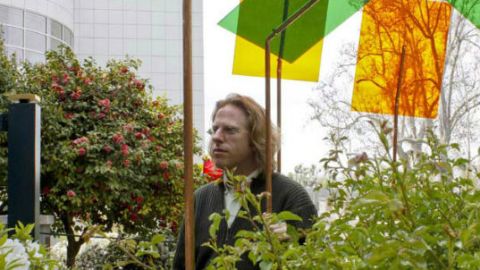The Experimental Cinema of Jonathan Keats

I have always been somewhat of a dilettante who enjoys doing everything and doesn’t do anything very well and there are a lot of other people out there who were making films quite well indeed, people like Stanley Kubrick for instance, people like Steven Spielberg arguably.
I felt that I probably could not compete with them because Hollywood already has employed them and humans are already entrenched in a way that we tend to expect of film certain things that make us crave what probably I as a filmmaker could never deliver like narrative.
So I decided that I would seek other audiences and it occurred to me that while there are a lot of us, there are a lot more plants and plants are able to perform photosynthesis and therefore, plants are in a position to enjoy cinematography, to enjoy films since the essence of film is light.
So I started to think about what plants might like, what sorts of movies might appeal to them and one thing about being a plant is that you have roots, so you don’t get to go anywhere and so I thought about perhaps travel documentaries as a form of entertainment and even of enlightenment that might appeal to plants, that what I might do is to film places where the plants were not and could not go and then to provide plants with that experience vicariously.
Now if you’re a plant of course you don’t really care about the Eiffel Tower or the Coliseum. What matters to you is the sky. That’s sort of the ultimate tourist attraction. So I filmed skies in Italy initially and I made travel documentaries that simply screened those skies for plants in a theater that I set up in New York and those plants over a period of several months were able to—they were ficus trees.
They were able to enjoy a little bit of Italy from afar and then they went back to their old New York ways and their old New York world, but perhaps they were different in ways that I don’t know, that we’ll never find out.
In Their Own Words is recorded in Big Think’s studio.
Image courtesy of Shutterstock





